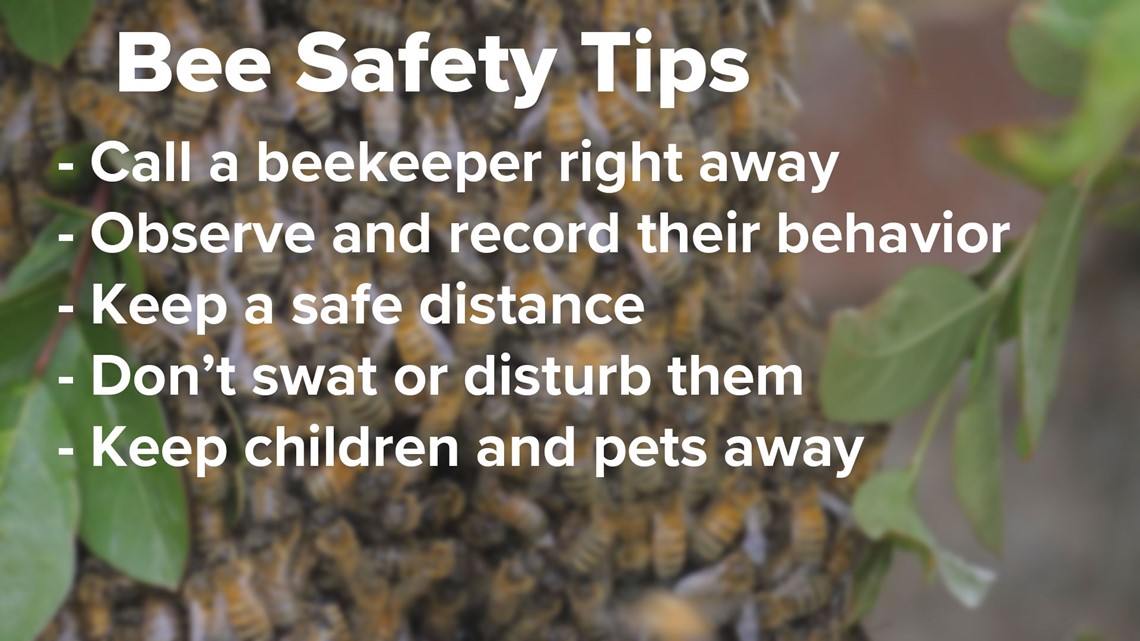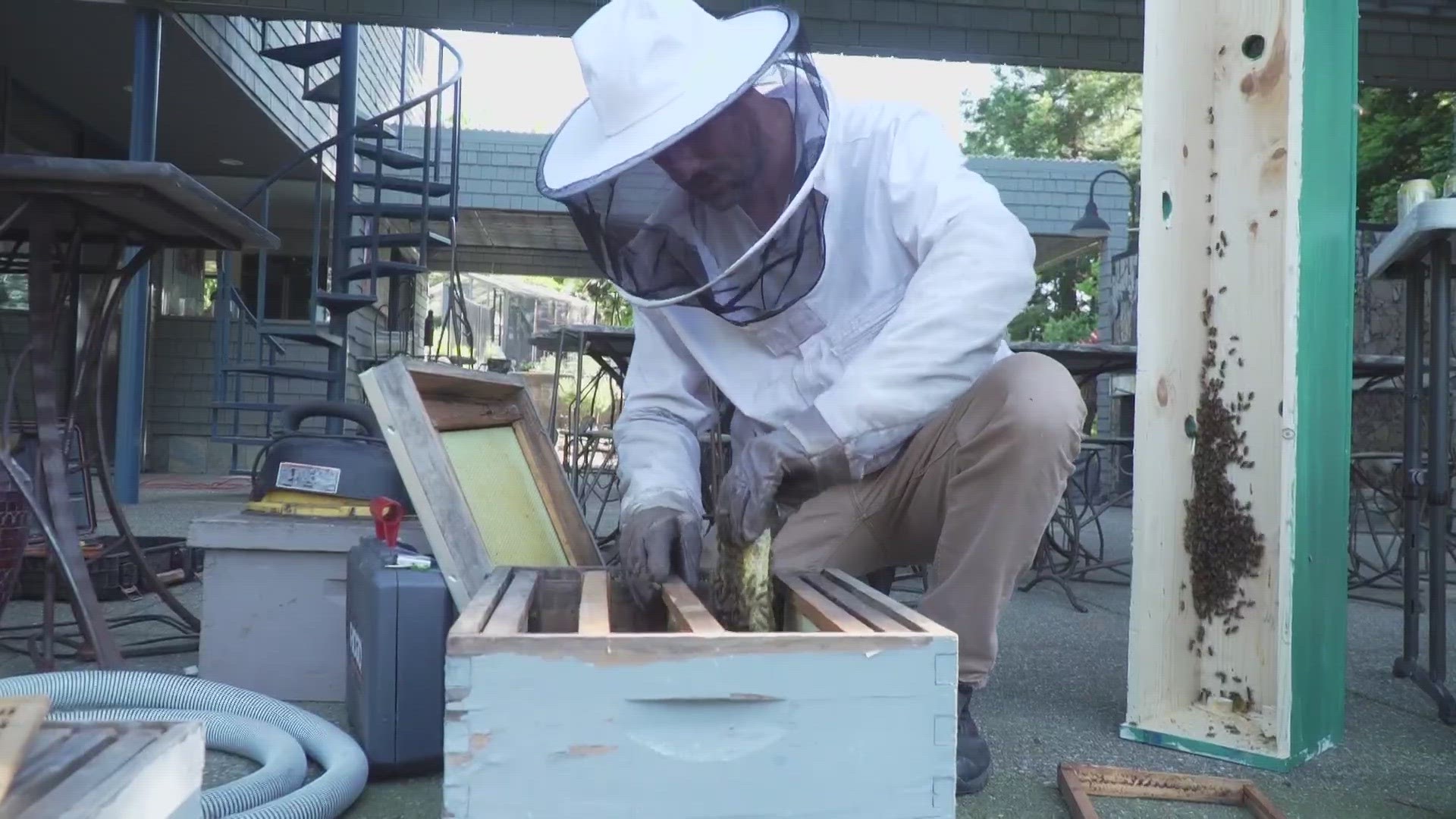SACRAMENTO, Calif. — The long winter season has kept many bee colonies inactive and in a state of almost hibernation as bees store enough pollen to eat during the winter months, but what happens when winter continues to extend into spring like it did this year?
Sacramento beekeeper Blake Dacy says the surviving bees are moving out to quickly grab pollen and water when they can. Since most of the rain has stopped, they’re looking to find the ideal location to build their hive back up.
“Now there's all this available food and the swarm calls are coming in an avalanche," said Dacy.
He says they've already answered about 500 calls to remove bee hives in the Sacramento area. Locations range from police and fire departments to schools, homeless camps and homes. He says the calls continue to come, but unfortunately they can’t get to everybody.
As the bees received some confusing signals between rain and sunshine this spring, flower growth has been sporadic.
"So you have more and more flowers kind of coming on like at the buffet line per se," said Dacy.
Less rain and now warmer temperatures are bringing out the bees in swarms. They're also more likely to become aggressive in the process of looking for more room to grow. Dacy says he's showed up to calls where the bees are furious.
Earlier in May, two people were badly hurt after a brutal bee attack in Los Angeles. It's estimated hundreds of thousands of bees belonged to a hive at a the home.
According to beekeepers, bees commonly make their hives on homes in places like chimneys, under-hangs, attics and backyard playhouses or sheds.
It's also common to find them in trees where they are close to pollen, fruit, sap or maple and a water source.
If you encounter bees, beekeepers recommend not swatting them. They may feel threatened and retaliate by stinging you, pets or children within the vicinity of their hive.
Make sure you keep a safe distance and call someone to help relocate the bees. It is common for bees to only stay a few days before finding a more suitable home. If they stay longer than 72 hours, observe and record their behavior, and keep in touch with a beekeeper.



